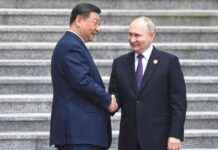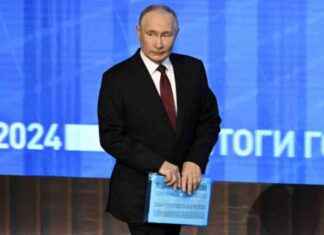A major development has taken place in the realm of international aid, with USAID suspending operations across the globe, except in Egypt and Israel. This move has left countless assistance programs in limbo, uncertain about their future direction. Initially described as a temporary measure during a three-month audit of USAID expenditures under the Trump administration, the suspension now appears more permanent following the placement of USAID leadership on administrative leave.
Elon Musk, known for his entrepreneurial ventures and technological innovations, was tasked by the Trump administration to identify and eliminate government waste through the Department of Government Efficiency (DOGE). Musk has since declared that USAID is beyond repair, advocating for its complete shutdown, a sentiment reportedly supported by President Trump. This shocking turn of events has sent shockwaves throughout Ukraine, with the halt of numerous critical projects deemed essential in the face of Russia’s full-scale invasion.
The sudden suspension of USAID operations has caught many organizations off guard, leaving them scrambling to retain staff and maintain operations during this uncertain period. The impact of this decision could be devastating for a country like Ukraine, which is already stretched thin financially due to allocating its entire budget towards defense against Russian aggression. The significance of USAID’s presence in Ukraine is underscored by the fact that its programs accounted for approximately 2% of the country’s GDP, a substantial figure.
### The Importance of USAID Assistance
Since the onset of the conflict, USAID has played a vital role in providing various forms of aid to Ukraine, including humanitarian assistance, development projects, and direct budget support. The allocation of billions of dollars towards these initiatives has had a tangible impact on the ground, supporting critical areas such as infrastructure, energy, agriculture, and healthcare.
Anatoliy Tkachuk, a former presidential adviser and key figure in Ukraine’s Decentralization Reform, sheds light on the structured approach of USAID assistance, highlighting its focus on supporting Ukraine’s rear and driving reforms. Tkachuk outlines the four major areas where USAID funding was channeled, emphasizing the importance of direct government spending, development projects, decentralization efforts, and humanitarian initiatives.
Tkachuk’s insights offer a comprehensive view of the breadth and depth of USAID’s contributions to Ukraine, ranging from repairing infrastructure damaged by conflict to modernizing energy systems and supporting local communities. One notable example cited is the swift deployment of high-power generators to Kharkiv following a Russian offensive, ensuring uninterrupted power supply to critical facilities in the city.
The impact of USAID’s assistance extends beyond physical infrastructure projects, encompassing initiatives in education, healthcare, and agriculture. From building missile shelters in schools to providing medical supplies and equipment, USAID’s investment has bolstered Ukraine’s resilience in the face of adversity. Tkachuk emphasizes that the loss of USAID support will not only affect Ukraine but also have implications for the United States, given the strategic partnership between the two countries.
### The Fallout of USAID’s Departure
As Ukraine grapples with the sudden cessation of USAID operations, the repercussions are being felt at all levels of society. The suspension of critical projects, such as the irrigation system in the Odesa region, highlights the immediate impact on local communities and their ability to address pressing needs. The uncertainty surrounding the audit process and the future of USAID assistance has created a sense of urgency among stakeholders who rely on this support.
The broader implications of USAID’s exit from Ukraine extend to geopolitical dynamics and strategic alliances. The void left by USAID’s departure raises questions about the sustainability of Ukraine’s defense efforts and the broader implications for regional stability. As the country navigates this challenging period, the absence of USAID funding underscores the need for innovative solutions and international solidarity in addressing complex global challenges.
In conclusion, the termination of USAID funding in Ukraine marks a significant shift in the landscape of international aid and cooperation. The impact of this decision reverberates across sectors, from infrastructure development to healthcare and education. As Ukraine adjusts to this new reality, the resilience and ingenuity of its people will be tested, highlighting the importance of solidarity and support in times of crisis.

















